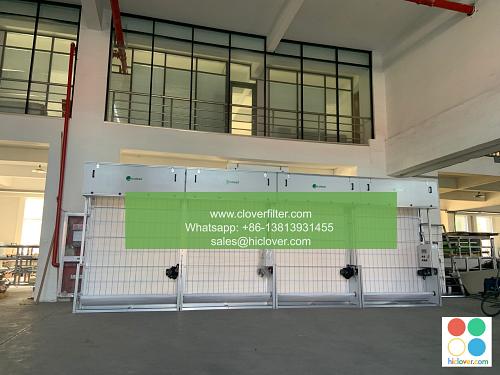Using Air Filter APIs to Develop Smart Air Purification Systems

As the world grapples with the challenges of air pollution, the development of smart air purification systems has become a pressing concern. One key technology that is driving this innovation is Air Filter APIs. These Application Programming Interfaces (APIs) provide a gateway to air quality data, enabling developers to create intelligent air purification systems that can detect, respond, and adapt to changing air quality conditions. In this article, we will explore the potential of Air Filter APIs in developing smart air purification systems, highlighting various application areas and key benefits.
What are Air Filter APIs?
Air Filter APIs are software interfaces that connect air quality sensors, air purifiers, and other devices to the internet, enabling the exchange of data and commands. These APIs provide real-time access to air quality data, including particulate matter (PM2.5, PM10), nitrogen dioxide (NO2), ozone (O3), and other pollutants. By leveraging Air Filter APIs, developers can create smart air purification systems that can monitor, analyze, and respond to air quality changes.
Application Areas for Smart Air Purification Systems
The application areas for smart air purification systems powered by Air Filter APIs are diverse and widespread. Some of the key areas include:
* Indoor Air Quality Monitoring: Air Filter APIs can be used to develop systems that monitor indoor air quality, providing real-time data on pollutant levels and triggering alerts when air quality exceeds safe thresholds.
* Smart Homes and Buildings: By integrating Air Filter APIs with smart home and building systems, developers can create automated air purification systems that adjust to changing occupancy patterns, air quality conditions, and energy efficiency requirements.
* Aerospace and Automotive: Air Filter APIs can be used to develop advanced air purification systems for aircraft, cars, and other vehicles, improving passenger health and safety.
* Industrial and Commercial Settings: Smart air purification systems powered by Air Filter APIs can be used in industrial and commercial settings, such as factories, warehouses, and office buildings, to maintain healthy air quality and reduce the risk of airborne diseases.
Key Benefits of Air Filter APIs
The use of Air Filter APIs in developing smart air purification systems offers several key benefits, including:
* Real-time Air Quality Data: Air Filter APIs provide access to real-time air quality data, enabling smart air purification systems to respond rapidly to changes in air quality.
* Increased Energy Efficiency: By optimizing air purification systems to respond to changing air quality conditions, Air Filter APIs can help reduce energy consumption and lower operating costs.
* Improved Health and Safety: Smart air purification systems powered by Air Filter APIs can help reduce the risk of airborne diseases, improving health and safety outcomes for occupants.
* Enhanced User Experience: Air Filter APIs can be used to develop user-friendly interfaces and mobile apps, enabling users to monitor and control air purification systems remotely.
Future Developments and Trends
As the demand for smart air purification systems continues to grow, we can expect to see further innovations and developments in Air Filter APIs. Some of the key trends and areas of research include:
* Artificial Intelligence (AI) and Machine Learning (ML): The integration of AI and ML algorithms with Air Filter APIs can enable smart air purification systems to learn from air quality data and adapt to changing conditions.
* Internet of Things (IoT) Connectivity: The growing adoption of IoT devices and networks will enable wider deployment of smart air purification systems, leveraging Air Filter APIs to connect and control devices.
* Big Data Analytics: The analysis of large datasets from Air Filter APIs can provide valuable insights into air quality trends, enabling developers to optimize smart air purification systems and improve health outcomes.
In conclusion, Air Filter APIs are a powerful tool for developing smart air purification systems that can detect, respond, and adapt to changing air quality conditions. By leveraging these APIs, developers can create innovative solutions that improve health and safety outcomes, reduce energy consumption, and enhance user experience. As the technology continues to evolve, we can expect to see further innovations and applications of Air Filter APIs in various industries and settings. You haven’t asked a question or provided any information for me to respond to. Please ask a question or provide a topic you’d like to discuss, and I’ll do my best to assist you.

